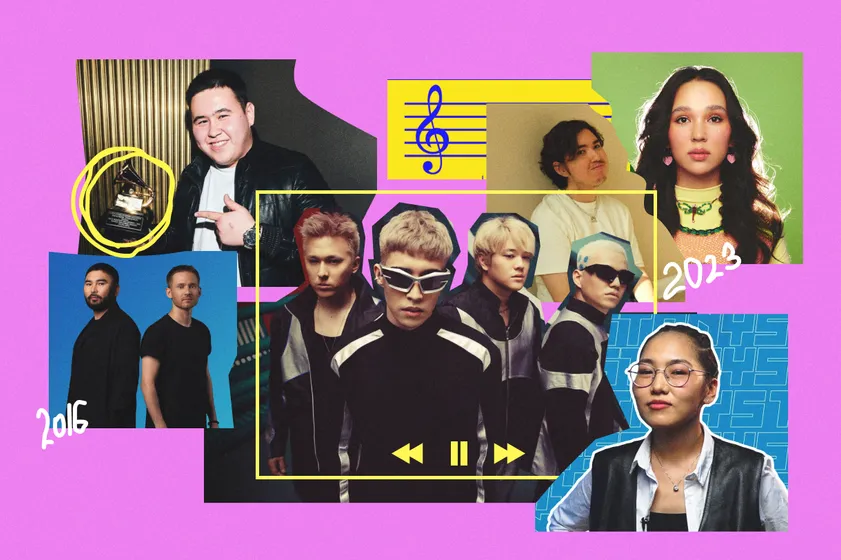In the early 2000s, the Kazakh music scene faced an initial stagnation, characterized by a prevalence of Kazakh toi or festive songs—melodies reserved mostly for celebrations in Kazakhstan. Music no longer held a prominent role but rather served as background accompaniment for celebrations, losing its status as a self-sufficient art form (hard to imagine the sounds of “Kyzyl Orik” resonating at any time other than during festive occasions).
However, around ten years ago, the music industry experienced a rejuvenation, breaking free from traditional norms and embracing a diverse range of genres. A departure from the conventional perception of Kazakh songs as outdated, the contemporary music landscape now showcases a fusion of ethnic styles and modern genres, with a pronounced emphasis on singing in Kazakh—a transformation that has resonated with audiences both locally and globally.
From the rise of Kazakh indie beats to the ‘TikTokification' of music, QazMonitor has meticulously compiled dynamic trends that have been shaking up the Kazakh music scene in recent years.
2015: Q-Pop
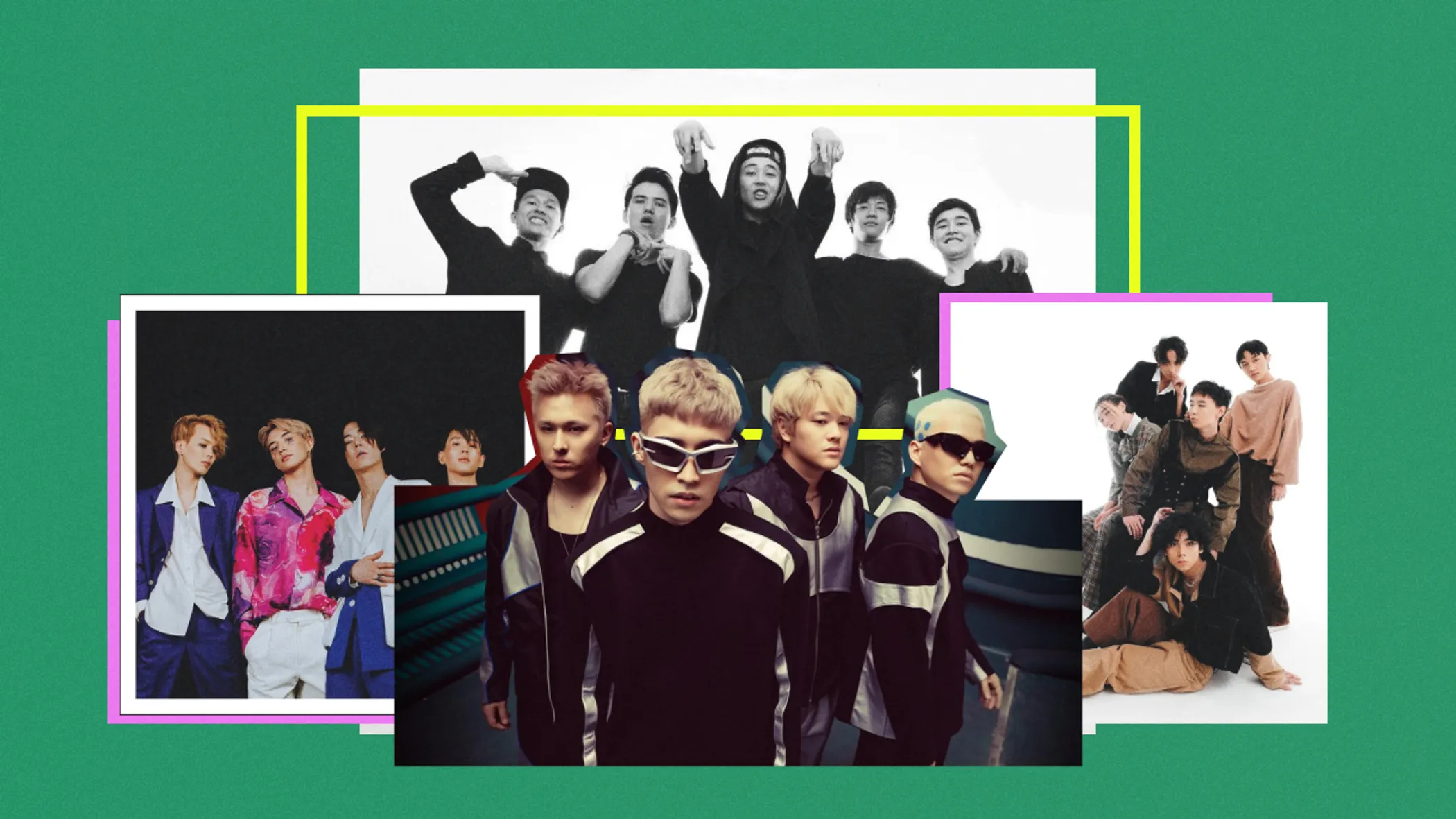
In 2015, Yerbolat Bedelkhan, a member of the band Orda, reshaped Kazakhstan's musical scene by introducing Ninety One — a boy band that marked the inception of Q-Pop (Qazaq Pop). Inspired by K-Pop, this genre seamlessly blends various styles, incorporating elements of singing, rapping, and dancing, defying conventional categorization.
The success of Ninety One sparked a wave, with over 50 Q-Pop groups and solo artists gaining recognition for their music. Some of the notable groups include Alpha, DNA, and Juzim.
While some of these groups remain active, the Q-Pop genre is experiencing a decline, evident in the disbandment of numerous bands. However, Ninety One has navigated this crisis, persistently releasing new music—albeit now as an independent four-member group.
2016: Moldanazar's fusion of styles

In 2016, singer-songwriter Moldanazar burst onto the scene with tracks "Alystama" and "Ozin gana," infusing synth-pop and funk with Kazakh lyrics. With an authentic and unconventional delivery, Moldanazar not only captured the audience's attention but also laid the foundation for a musical transformation in Kazakhstan.
Demonstrating versatility, Galymzhan explored genres like pop, electro, rock, and traditional folk, earning him the well-deserved title of the pioneer of Kazakh indie music.
In the same year, the release of Stranger Things transported everyone back to the ‘80s. Colorful jackets, combat boots, and neon accessories resurfaced, with everyone immersing themselves in the vibrant aesthetic of the era. The '80s revival, however, extended beyond fashion; it echoed in the music scene with the emergence of synth-heavy tunes. Moldanazar seized the opportunity and became the trailblazer of this style in Kazakhstan, embracing it even before global stars propelled the popularity of this nostalgic sound worldwide.
2017: Dimash and V $ X V PRiNCE
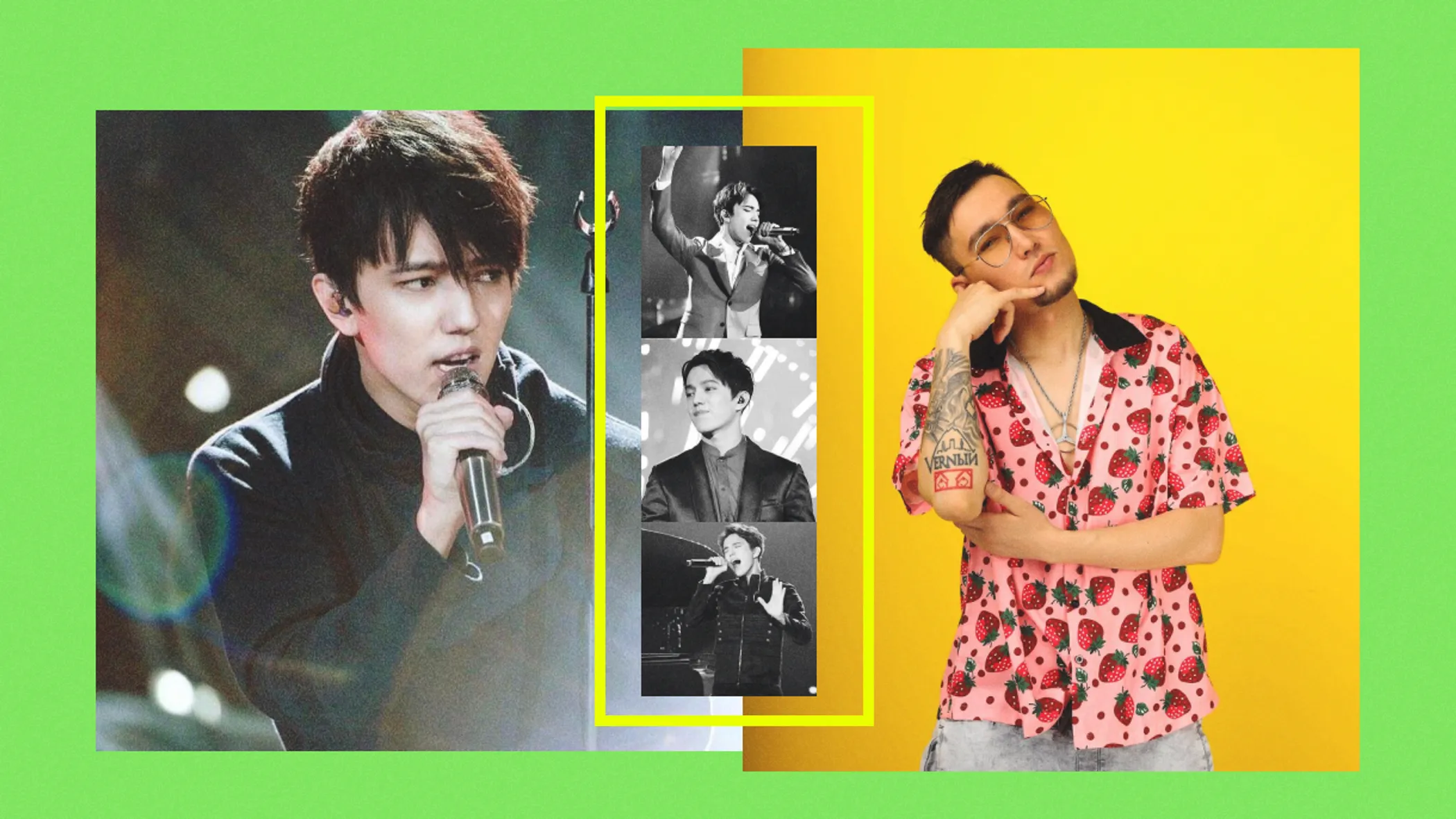
In 2017, two notable artists commenced their careers. Dimash Qudaibergen, the beloved Kazakh singer, achieved global fame through his participation in the Chinese TV show I Am Singer. Rather than adhering to a specific genre, Dimash's music revolves around his extraordinary vocal talent. The singer brilliantly intertwines classical elements and traditional Kazakh music with pop music.
In the same year, another influential artist, V $ X V PRiNCE (pronounced as Askha Prince), laid the foundation for his musical journey with his album Ne Za Gorami. Despite being a slow burner, this LP provided a solid foundation for his future works. Currently, the singer commands an impressive presence with seven songs from various albums gracing the Top 100: Kazakhstan chart on Apple Music. Gaining popularity on social media, V $ X V PRiNCE has evolved into a stadium-filling artist with a devoted audience.
2018: Modern Kazakh Pop Music
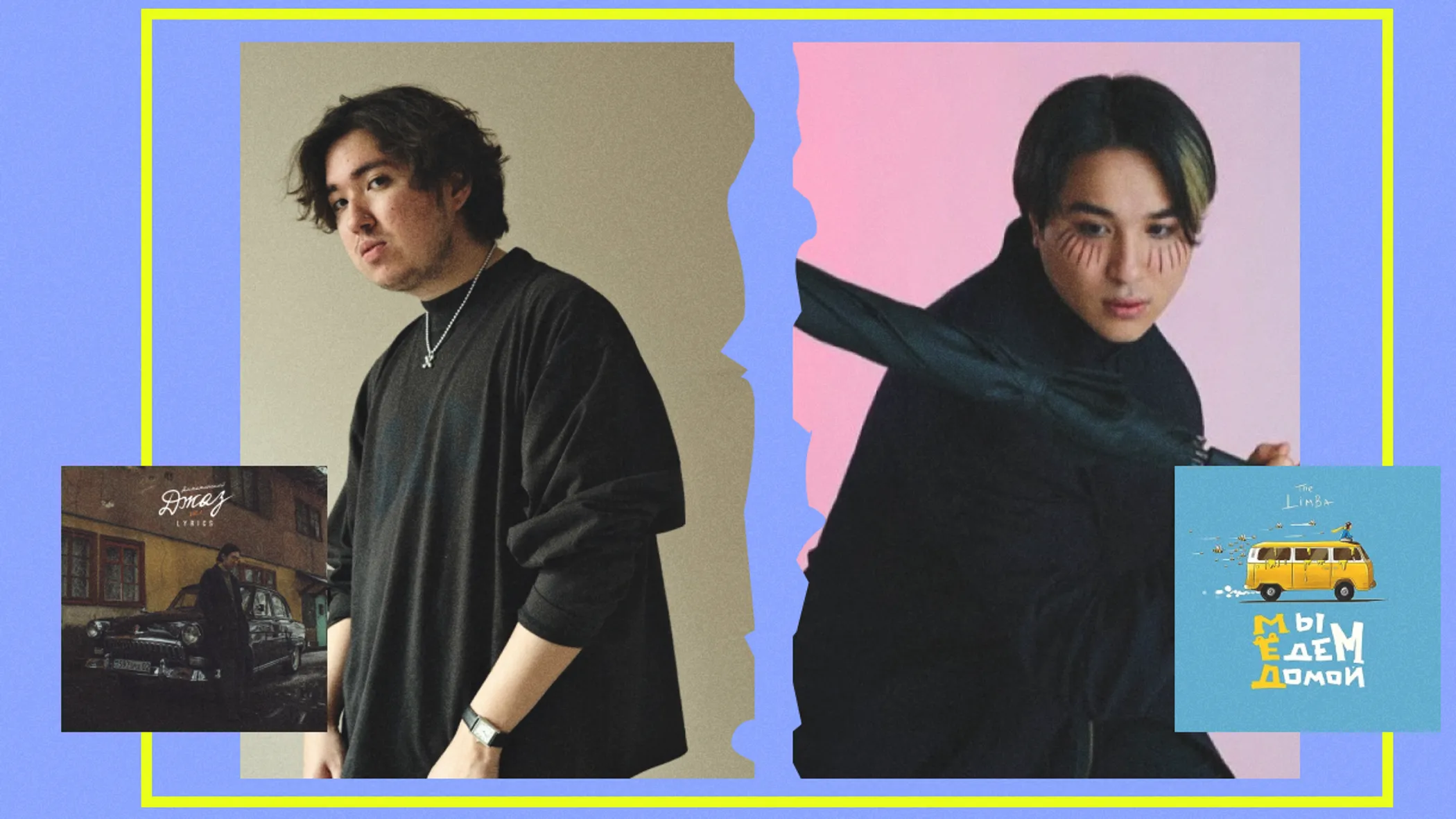
In 2018, singers M'dee and Limba played pivotal roles in transforming Kazakh pop music. Originally known for his cover songs, newcomer M'dee released his first album Almatinskiy Jazz, Vol.1, showcasing a delicate fusion of pop with disco-funk, drawing inspiration from the vibrant sounds of the '80s.
Meanwhile, The Limba, another singer that debuted that year, released an album My edem domoy and garnered significant attention for its fusion of pop melodies with enticing elements of R&B. Originally unplanned for release, his single “Obmanula” unexpectedly soared to the top of the iTunes charts.
2019: Grammy-winning records and indie-pop
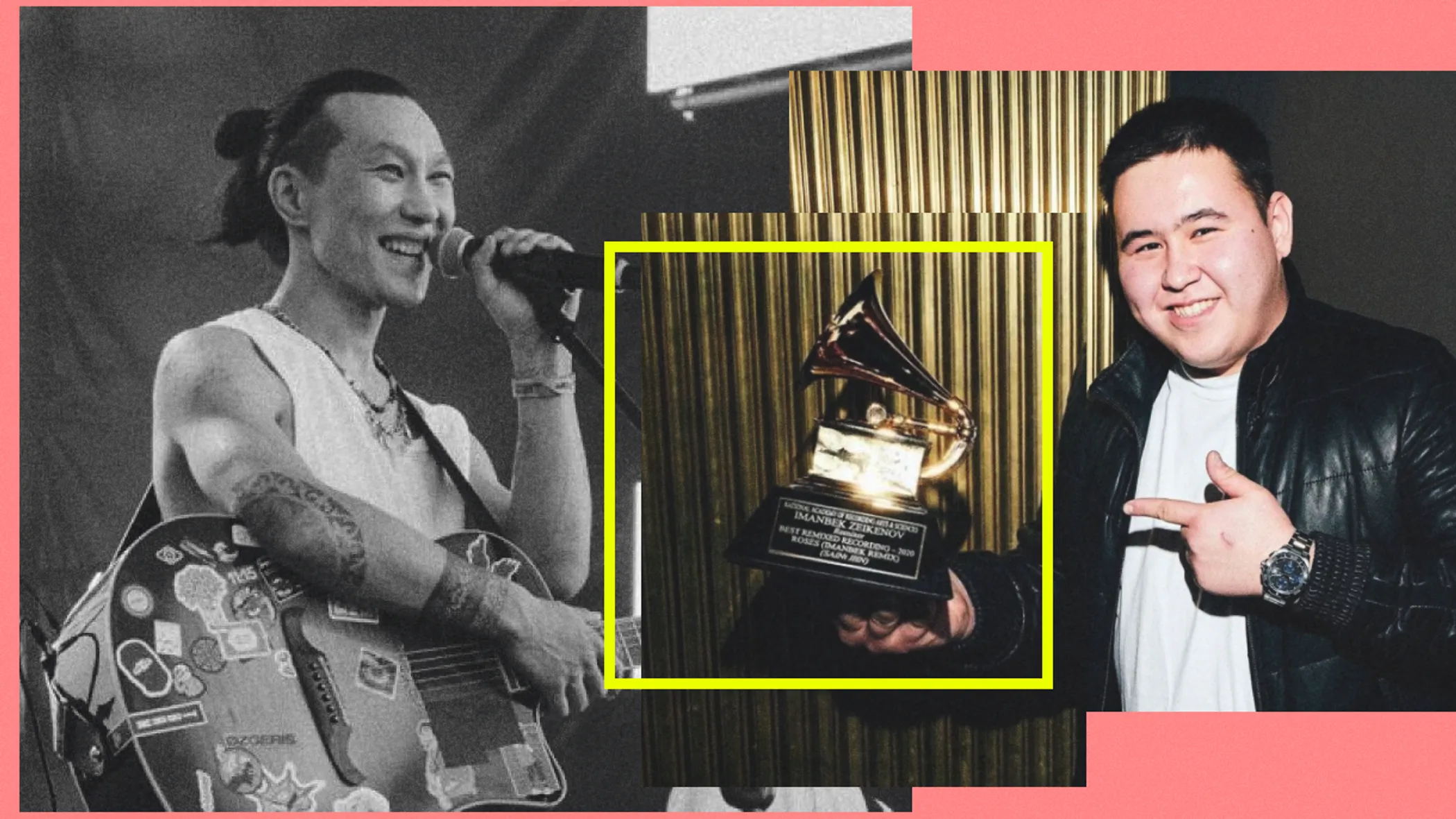
õzen label, established in 2019, brought together artists like jeltoksan, Yenlik, and Shiza, crafting a space that embraced diverse influences, particularly in hip-hop and R&B. The late Darkhan Juzz's debut single "Quralai" added indie-pop elements to the label's portfolio, and his subsequent works played a significant role in popularizing the Kazakh language in the domestic music scene.
Another noteworthy event of 2019 was Imanbek's global triumph with the remix of "Roses" by SAINt JHN. Dominating the Hot Dance/Electronic Songs Billboard chart for an impressive 23 weeks, this remix not only solidified Imanbek's international presence but also earned him a Grammy in 2021 for the best-remixed recording.
2020: Covid-19 and a wave of new artists
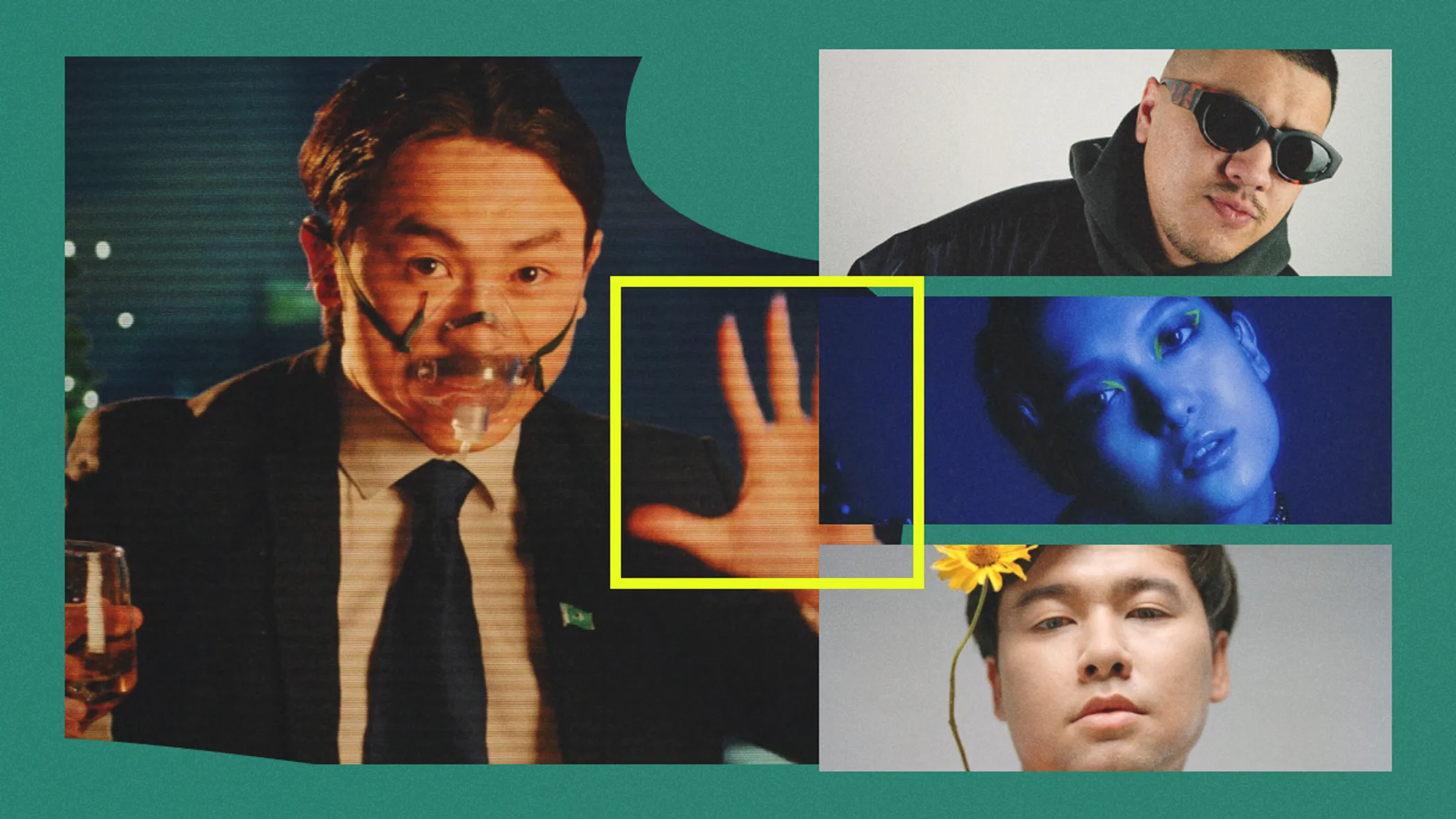
In 2020, the pandemic prompted a surge of emerging artists who, despite challenges, found creative opportunities amid disrupted routines, experimenting with new sounds, genres, and lyrical themes. At the same time, digital platforms and social media became vital for artists, serving as accessible avenues for artists to connect with audiences and promote their music to a captive online audience.
First, Shiza's single "Shym" made waves in 2020, resonating with listeners as he painted an unfiltered picture of his hometown. While Kazakhstan boasts renowned rap artists like Skryptonite, Hiro, and 104, Shiza distinguished himself by rapping exclusively in Kazakh, adding an authentic flavor to his musical narrative.
During the same year, Dequine marked her entrance into the industry with the debut album Labum, showcasing her talent that had already gained attention through earlier duets and YouTube covers.
Another hit that came out that year was Irina Kairatovna’s single “5000”, gaining attention for its bold exploration of societal issues in Kazakhstan, both through lyrics and visual references in the music video.
Meanwhile, Galymzhan Moldanazar has established his own label, signing talents such as Orynkhan and Ali, with both artists embracing indie and elements of folk music. Ali has now formed kunzharyq - a band under the same label, further shaping the trajectory of modern Kazakh music.
Finally, the establishment of the label qazaq indie in the same year signaled a commitment to fostering and supporting independent artists, adding another layer to the musical landscape.
2021: The old and the new
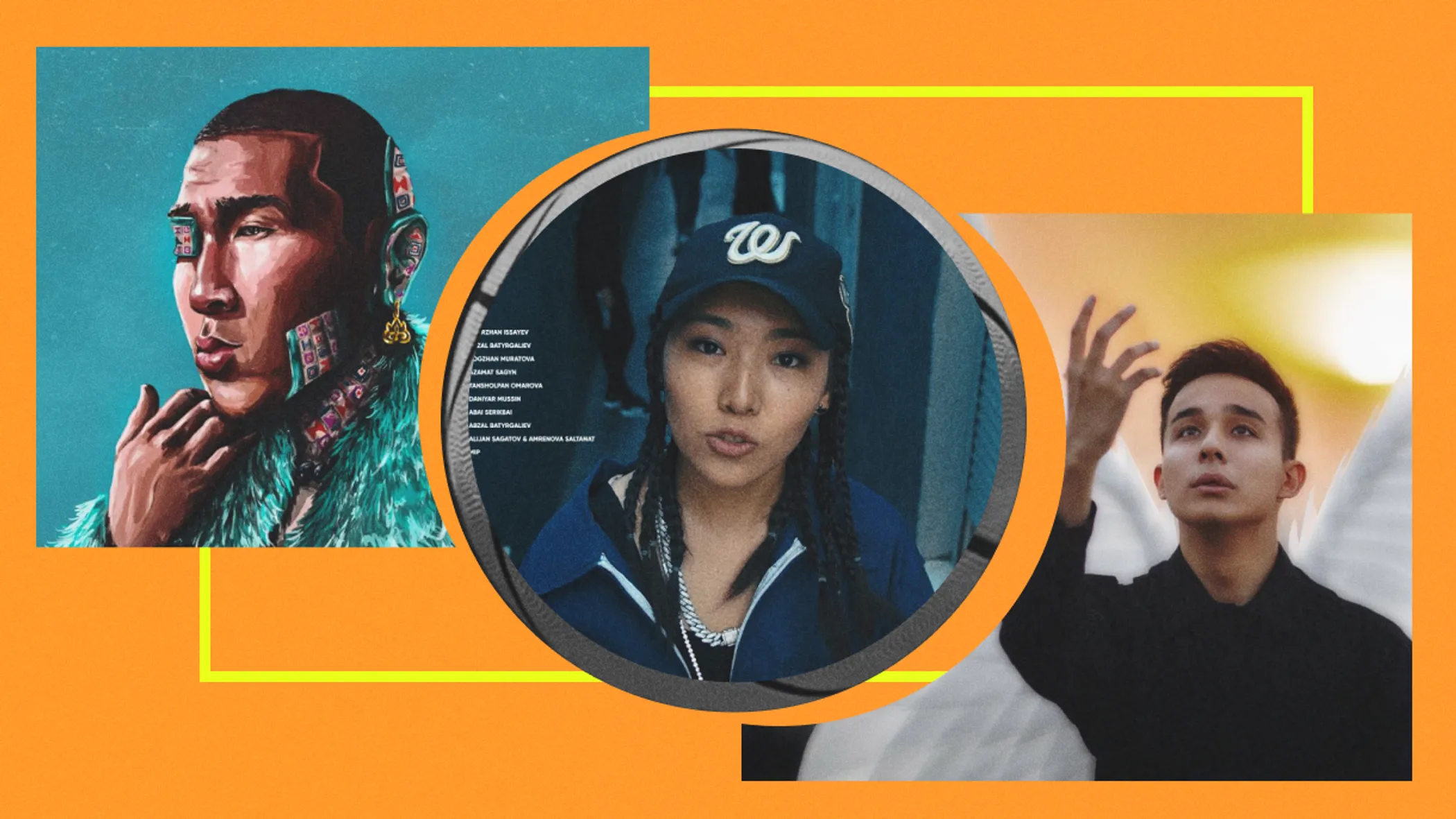
Yenlik brought a fresh sound to Kazakh rap with "DOP", laying bare her authentic life experiences without artificial glam. Her musical career has since flourished, and fans eagerly await a more melodic release, especially after her beautiful rendition of “Men dep oila” went viral.
Miras Zhugunusov's single "Zymyran", which came out in the same year, embraced the unapologetic traditional Kazakh pop sound that many of his peers are trying to distance themselves from. Placing great importance on lyrics, Miras captivated an audience yearning for the good old romantic wordplay, as evident in the 45 million views on the mood video for his single "Zymyran".
In a similar vein, Sadraddin, who debuted in the same year, soared to the top of the Top 100: Kazakhstan chart on Apple Music with his song “Aiga Qarap” this year, striking a chord with listeners who appreciate a nod to traditional sounds.
Dudeontheguitar made his 2021 debut with "Korpe", marking a turning point from his street-singing days in Almaty. Evolving into a songwriter, he encapsulated authenticity and a unique style, blending indie, pop, and hip-hop, delivering a fresh sound.
2022: New Voices Ayau, Rusha, and Kyle Ruh

2022 was the year of the rise of pop and R&B music in Kazakh, with M'dee's establishment of his label Zakrytyi Club and the introduction of new voices like Ayau, Rusha, and abdr., each with their distinct voice and narrative. Despite the stylistic differences between the artists, they collectively lean towards an indie-pop and R&B direction.
Ayau swiftly captured the audience's attention with the release of her hit pop single "Sybyrlaiyn", soaring to the top of local charts. Rusha, whose duet song with M’dee garnered almost one million views on YouTube, is also gaining notable interest. Meanwhile, abdr., who made waves in 2019 with his debut album, made a return with a new release under Zakrytyi Club this year.
Amidst the lingering pandemic restrictions that began in 2020, artists barely had a chance to perform live. The Gakku Dauysy festival emerged as a breath of fresh air in 2022, providing fans with a chance to witness performances by beloved artists such as Ninety One, Jah Khalib, M’dee, and others after a long period. Notably, it served as a platform for emerging talents like Yenlik, who debuted during the pandemic, to finally showcase their artistry on stage.
2023: ‘Tiktokification’ of music

In 2023, TikTok solidified its role as a viral music platform. Singer Liili gained widespread recognition for her 2021 release, "Hot," which experienced a surge in popularity on social media this year. The track found its way into over 500,000 Reels globally, even making an appearance in Kim Kardashian's Instagram Stories.
TikTok's impact on Kazakhstan's music scene is reflected in songs climbing to the top of the charts. Tracks like "Cheena" by Irina Kairatovna and "Aperem-ai" by Ninety One gained significant popularity, propelled by the platform's viral power.
Speaking of Ninety One, the group underwent a transformative phase after parting ways with their former label, JUZ Entertainment. Departing from the conventional Q-Pop genre, the group embraced a new musical direction. Now independent, they explore genres, control their creative process, and even write their chords, emphasizing their commitment to musical experimentation and autonomy.
